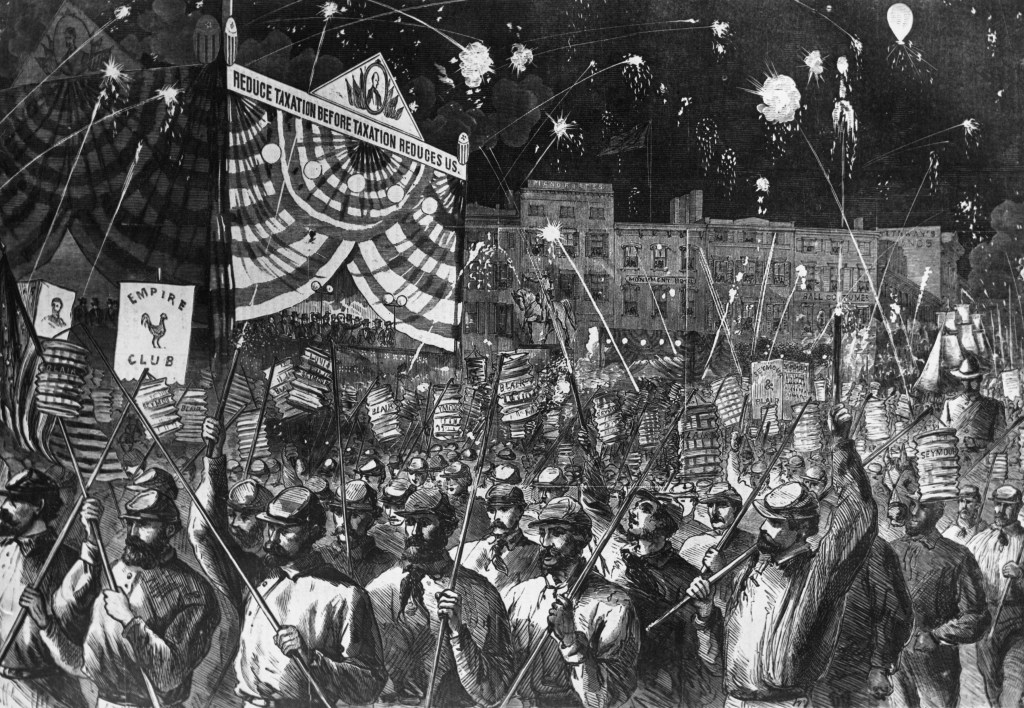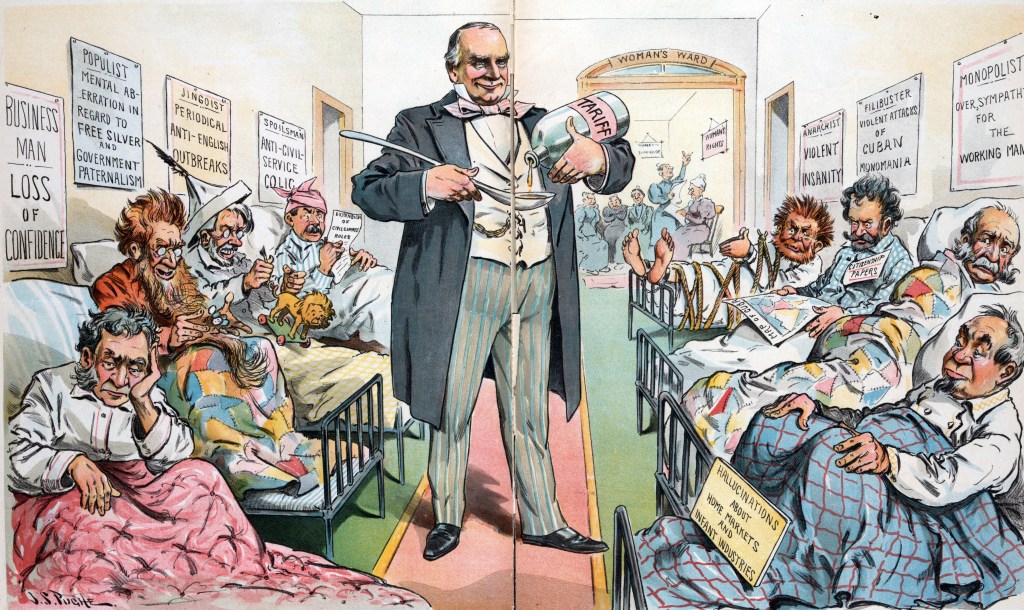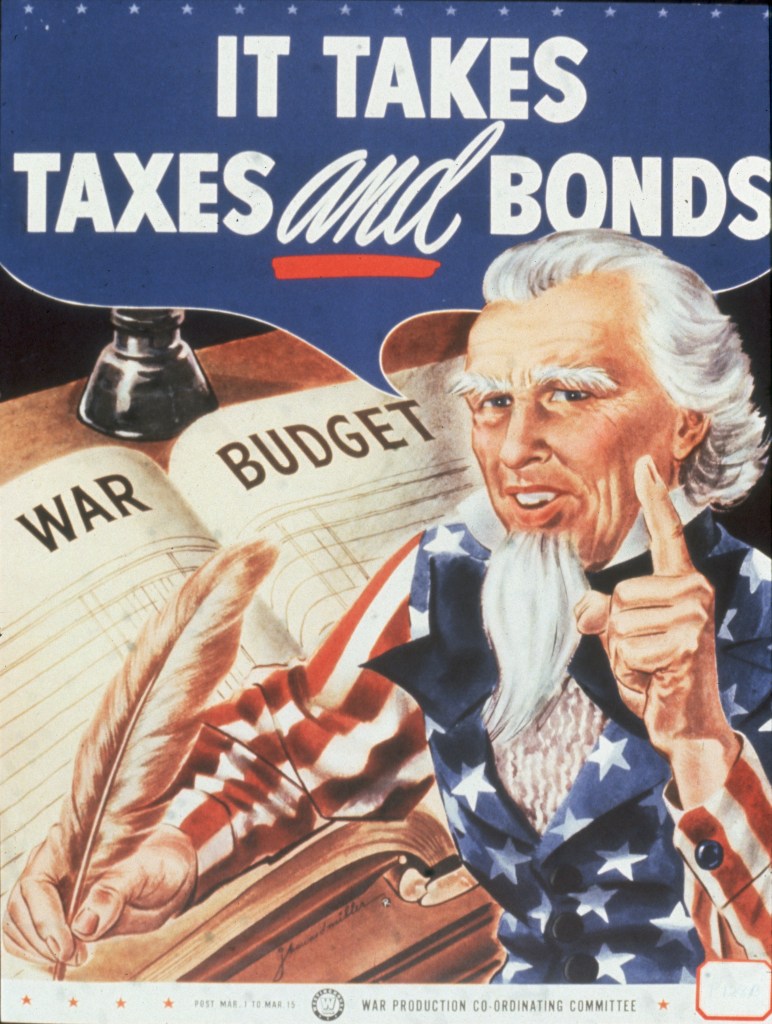In a presidential campaign cycle filled with tax cut proposals, one is loftier than all the rest. Former President Donald Trump has repeatedly floated the idea of getting rid of individual income tax and replacing it with revenue from tariffs.
Individual income tax currently provides 49% of the federal government’s annual revenue.
“Were you serious about that?” Joe Rogan asked Trump of replacing income taxes with tariffs.
“Yeah, sure. But why not?” Trump replied.
This country can become rich with the proper use of tariffs.
Former President Donald Trump
In a Bronx barbershop, Trump expanded on the proposal.
“When we were a smart country, in the 1890s and all, this is when the country was, relatively, the richest it ever was,” he said. “It had all tariffs. It didn’t have an income tax.”
A time before income tax
While income tax has been around for thousands of years, the United States has not. When the Constitution granted Congress authority to impose taxes, most of them were excise taxes, which are taxes placed on specific goods, like alcohol and tobacco.
The country’s first income tax came in 1861 to raise money for the Civil War. It was a flat tax and later repealed in 1872.

In 1890, the McKinley Tariff, named after then-Rep. William McKinley, raised the average duty on imports to around 50%.
From 1868 until 1913, 90% of all federal revenue came from taxes on liquor, beer, wine and tobacco, according to the Internal Revenue Service.
“And then around in the early 1900s, they switched over, stupidly, to frankly, an income tax,” Trump said.
This was the result of a years-long push by progressives to lower tariffs. The income tax became a fixture of U.S. tax policy via constitutional amendment in 1913.
“The country had grown too big and our industries were stable enough that it wasn’t realistic, nor was it necessary, for us to be able to continue to raise most of our revenues through tariffs,” David M. Walker, former Comptroller General of the United States and chair of the Federal Fiscal Sustainability Foundation, said.
An all-tariff policy today not ‘realistic’
“I don’t think it’s feasible to go from our current system to where we’re totally relying on tariffs. It is possible to go from our current system to where we’re relying primarily, not exclusively, on a progressive consumption tax,” Walker told Straight Arrow News. “But it would be a dramatic change from where we are right now, and government doesn’t tend to do things dramatically all at once.”
Walker served under Presidents Bill Clinton and George W. Bush. He has also run for office in Connecticut as a Republican. He told SAN Trump’s proposal to replace income taxes with tariffs is not realistic today.
“I think it’s important to understand that in 1912, right before the income tax came in the U.S., federal government was only 2.5% of the economy, 2.5%. And now we’re approaching 25% of the economy and growing,” Walker said.
The federal government today is a lot bigger than in the 1800s. And for better or worse, federal spending plays a much more critical role in U.S. economic growth.
The debate around ‘who pays for tariffs’
A lot has changed in the U.S. since the turn of the 20th century. But what is remarkably similar is the debate around tariffs.
A New York Times article from 1890 reads:
“The Republican campaign orators and pamphleteers say that the various import duties levied by Congress are paid by the foreigners who send goods to America, and they deny point blank that the price of any article which may be called a necessary expense will be increased to Americans by the operation of the new tariff law … It is no longer necessary to meet theories with theories. Let the facts, which are multiplying every day, tell who it is that pays the onerous tariff taxes. They will answer that the American people pay these taxes and that the burden of them rests most heavily on the poor.”
The article then went paragraph by paragraph detailing how merchants are marking up everything from clothing to crockery to groceries to horse clippers, all within weeks of the McKinley Tariff passing.
The tariffs proved pretty unpopular and Republicans lost dozens of House seats that election, including Rep. McKinley himself. But McKinley didn’t stay knocked down for long. He later became governor of Ohio and then president.

“A president who was assassinated named McKinley, he was the tariff king,” Trump told Rogan. “He spoke beautifully of tariffs. His language was really beautiful.”
Today, Trump makes the same claim of tariffs as Republicans in 1890. It is the same claim he made in his first term as president.
“So we’re taking in many billions of dollars, there’s been absolutely no inflation, and frankly, it hasn’t cost our consumer anything, it costs China,” Trump said of his China tariffs in 2019.
But by 2020, thousands of American companies sued the Trump administration, demanding a reversal of the tariff policy and refunds on tariff payments made by the companies. Among those thousands of companies was Tesla, the company that made current Trump surrogate Elon Musk rich.
Tesla had argued in its lawsuit that the tariffs were “arbitrary and capricious,” and said the administration “failed to consider relevant factors when making its decision, and failed to draw a rational connection between the facts found and the choices made.”
Analyzing Trump’s other tariff proposals
Economists and analysts across the board continue to say that Americans pay for tariffs.
“The truth of it is that it is a tax,” said Preston Brashers from the conservative think tank The Heritage Foundation. “It is something that gets passed along to consumers, and in some cases, it’s going to be something that’s passed along to producers here in the United States when they’re buying products from overseas.”
Trump said his tariff plans will “be bringing in billions and billions of dollars, which will directly reduce our deficits.”
Estimates consistently project the revenue Trump’s tariff proposals would raise will not pay for Trump’s tax cut proposals. These estimates do not consider the loftier “get rid of income tax” idea.
“The important thing with these tariffs is, if they work as intended, they will reduce trade, and so they don’t raise as much revenue as you might think,” Marc Goldwein from the Committee for a Responsible Federal Budget said.
The bipartisan CRFB says campaign plans from Vice President Kamala Harris will increase debt by an estimated $3.5 trillion over the next decade, whereas Trump’s plans add $7.5 trillion to the debt.
You’re not going to see a fundamental shift away from our historical revenue sources because the gap is just too great.
David M. Walker, former Comptroller General
“Let me give you the bottom line,” Walker said. “Neither major candidate for president has taken our deteriorating financial condition seriously. Both of them are making promises that will make our situation worse rather than better. But one also has to consider that this is what I call the silly season. Lots of promises are made and you have to assess what is the political feasibility of those promises happen[ing], and in some cases even what is the constitutionality of some of those things happening.”
“I think what’s more realistic is you could see selected imposition of tariffs on certain goods from certain countries in order to try to help level the playing field and in order to try to help promote more domestic jobs,” Walker added. “But you’re not going to see, I think, across-the-board approaches, and you’re not going to see a fundamental shift away from our historical revenue sources because the gap is just too great.”

Even history shows where tariff-driven revenue fell short: times of war. The United States had to temporarily turn to an income tax to fund the Civil War. The threat of war pushed remaining states to ratify the 16th Amendment, allowing Congress to tax incomes. And during World Wars I and II, Congress dug deep into the income tax coffer to pay for it.
Famous New York lawyer Amos Pinchot led the charge pushing Congress to raise income tax rates on the wealthy ahead of American involvement in World War I.
He correctly predicted, “If we ever get a big income tax on in wartime, some of it – a lot of it – is going to stick.”








